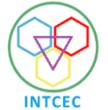
How Leadership is Changing in the Digital Age
Read a summary using the INOMICS AI tool
We live in an ever-evolving digital world. Today, brands, businesses, and organisations strive to keep up with emerging market trends and tap into the modern 'on the go' consumer mentality. For centuries, people have called upon leaders to steer them in the right direction, achieve incredible feats, and enjoy success - but what does that mean in the digital age?
As disruptive technologies become make more impact in the professional and commercial world, a new style of leadership is essential; one that brings together a potent combination of skills to adeptly navigate a rapidly evolving technological landscape.
According to research from Neil Patel, mobile particularly will count for more than 50% of marketing budgets. This discovery is indicative to just how much digital has changed the way we work and think as both individuals and organisations.
So what does digital leadership mean in 2017 and beyond? Let's take a look at a few key findings of leadership in today's world.
Digital leadership in the modern organisation
An Econsultancy study found that while the vast majority of survey respondents believed that it was imperative for leaders to be technology literate in the modern business environment, far fewer believed that the level of literacy among their own leadership was strong.
In today's world, to steer your ship in the right direction and help people perform at an optimum level, it is important to remain agile, adaptable - and practice what you preach.
Millennials, in particular, need to feel challenged in their roles and understand that there is room for progression if they are going to stick around, which is why leaders in today's fast-paced digital world must take a more collaborative approach, drawing from a wider range of leadership styles.
39% of employees are concerned about their position being automated or made obsolete in the next five years. While in some cases, it's impossible for a leader to hand on heart confirm indefinite job security, it is their responsibility to help engage, inspire, and upskill team members to ensure they feel happy, secure, and fulfilled in their work. Ultimately, people will perform better if they feel safe and comfortable and a large part of that comes down to leadership.
The emergence of collaborative digital technologies means it's never been easier for people to share thoughts, send documents, develop ideas, access common data, and arrange meetings in the workplace. While once upon a time, most of these duties fell on the shoulders of those at management or executive level, in today's digital world, people can take a far more autonomous approach to their work.
Although confidence, assertiveness, organisational skills, and the ability to be personable are still essential leadership qualities, today's leader must possess a range of digital skills and take on the role of sounding board, collaborator, and inspirator, in addition to delegating work, and crafting sustainable business plans.
To stay up to date with the latest digital trends, those at management or executive level will benefit from attending the 3XE Digital Conference in Dublin.
Key characteristics of an effective digital leader
It's plain to see that digital transformation has changed the way brands and business work, collaborate and communicate. Today's digital leaders must have the ability to create, cultivate, and support an open, collaborative, and autonomous company culture to ensure long-term success. To offer a clearer picture on leadership in the digital world, here are five key traits to consider:
- Customer centric: digital leaders must prioritise development that is driven by customer needs and must align company structures, processes, and strategies towards a flawless consumer experience.
- Tech-savvy: first, digital leaders must understand integration and the application of technology to enhance businesses. Second, leaders need to set up a plan to upskill their personnel and educate them about how to use technologies within the organisation effectively. For these reasons, we recommend having a look at digital programs both for themselves and for their teams regularly.
- Visionary: digital leaders must be perpetually forward thinking and have a strong vision and focus, and the ability to communicate their message. In this case, the ability to create a culture of flexibility and adaptability to constant change that people want to keep up.
- Adaptive and agile: in relation the previous point, digital leaders must maintain the ability to adapt digital strategies, reorganise to leverage opportunities, and embrace uncertainty.
- Data-driven: digital leaders are only useful if they are adept in the use of data to drive decision-making, particularly when it comes to product development, or prioritising for investments.
Conclusion
“If your customer base is ageing with you, then eventually you are going to become obsolete or irrelevant. You need to be constantly figuring out who are your new customers and what are you doing to stay forever young.” - Jeff Bezos, founder of Amazon
The digital landscape is morphing all the time, and it's up to the digital leader to ensure their team or organisation can move, adapt, and evolve with it. Digital training is vital, as well as the ability to support your staff and allow them to learn valuable lessons from their mistakes.
Being a leader in today's digital world is about mindfulness, adaptability and the desire to be relevant; there's no room in today's world for stubbornness. Agility will help drive success, spark inspiration, and ensure long lasting success.
Don't fall behind, it may cost you your job.
Witten by Dan Hughes
DISCOVER MORE TOPICS ON DUEDIGITAL.COM
in Today's Digital World 5 Essential Digital
Courses and Events for 2017
How to Prepare for the Era of
Digital Transformation
The best opportunities in Digital Jobs, Programs and Conferences
-
- Mid-Level Industry Job
- Posted 2 months ago
Senior Project Manager
At CV-Library in Twyford, Reino Unido -
- Conferencia
- (Partially Online)
- Posted 6 days ago
5th Interdisciplinary Conference on Electrics and Computer
Between 15 Sep and 16 Sep in Chicago, Estados Unidos
-
- Practitioner / Consultant Job
- Posted 6 hours ago
CIVIL ENGINEER
At Conrad Consulting in Derby, Reino Unido




